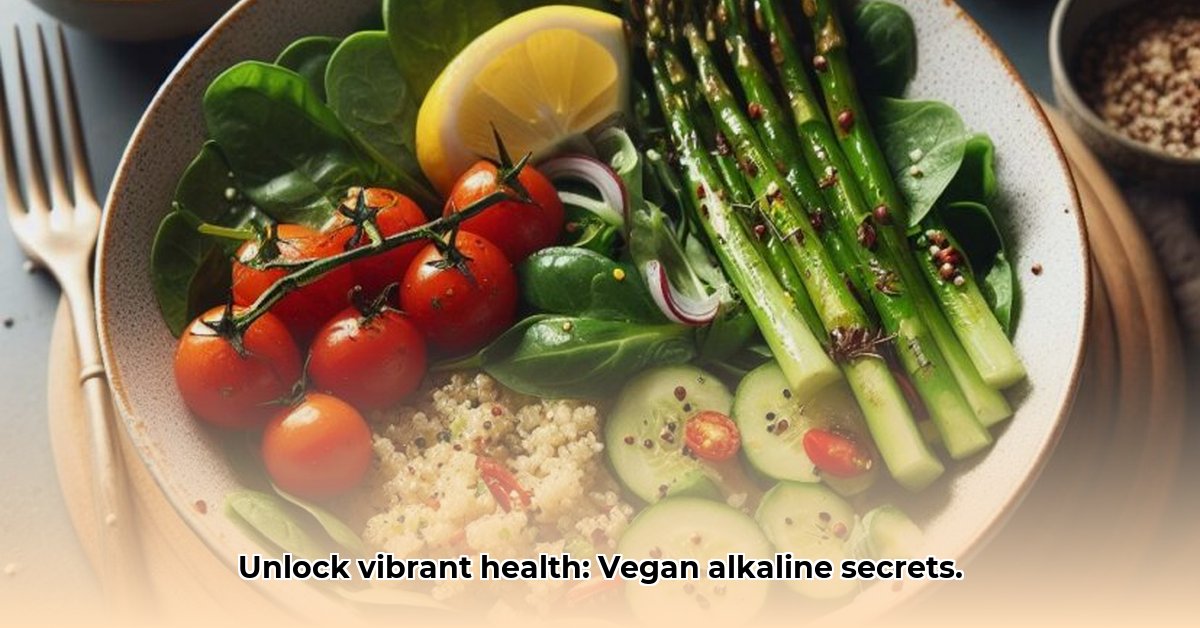
Understanding the Alkaline Vegan Approach: Fact vs. Fiction
Eish, so you're thinking about an alkaline vegan diet, hey? It's all the rage, promising a healthier, happier you through plant-based eating. The core idea is that alkaline foods (lots of fruits, veggies, and legumes) help balance your body's pH. Now, while a diet packed with these goodies is definitely a good thing, the science on the direct blood pH impact is still a bit hazy. Your body's a clever machine, regulating its own pH pretty well. What we do know is a balanced, plant-based diet is generally fantastic for your health. Remember, though, this guide is for information only – always chat to your doctor before making any big dietary changes.
Many misunderstandings exist. Some believe you need fancy pH testing strips? Nope! Just focus on a diverse, healthy diet. Others think alkaline foods directly alter your blood pH, which isn't entirely accurate. Your body's natural pH regulation is far more powerful. This guide aims to clear things up, separating fact from fiction.
Crafting Your Alkaline Vegan Meal Plan: A Delicious Journey
Right, let's create a meal plan that works for you. This isn't about strict rules; it's about finding what you enjoy and sticking to it.
Sample Meal Ideas:
Breakfast:
- Overnight oats with berries and chia seeds.
- Green smoothie with spinach, kale, banana, and almond milk.
- Whole-grain porridge with fresh fruit and a dollop of unsweetened almond yogurt.
Lunch:
- Big salad with veggies, quinoa, and baked tofu or chickpeas.
- Lentil soup with whole-wheat bread.
- Leftovers from dinner – convenient and delicious!
Dinner:
- Vegetable curry with brown rice.
- Stir-fry with your favourite veggies and tempeh or tofu.
- Black bean burgers on whole-wheat buns.
Snacks: Keep it simple with fruit, veggies, a small handful of nuts or seeds.
Sample Shopping List: (Adapt to your taste!)
| Food Group | Examples |
|---|---|
| Leafy Greens | Spinach, kale, lettuce, arugula |
| Berries | Strawberries, blueberries, raspberries |
| Avocados | |
| Legumes | Lentils, chickpeas, kidney beans |
| Nuts & Seeds | Almonds, walnuts, chia seeds, flax seeds |
| Whole Grains | Brown rice, quinoa, oats |
| Other Fruits & Veggies | Sweet potatoes, broccoli, peppers, etc. |
Meal Prep: Prep ingredients on weekends – chop veggies, cook grains. This makes weeknights a breeze!
Nutritional Power-Up: B12, iron, and calcium are crucial. Discuss supplementation with your doctor.
Monitoring Your Health: Staying on Track
Regular check-ups with your doctor are essential. They'll monitor your blood work, ensuring you're getting all the nutrients you need. Keep a food diary or use an app to track your progress. How's your energy? How's your weight? A diary or app helps here. Remember, it's a journey, not a race. Adjust your plan if needed. If something doesn't feel right, don't hesitate to speak to your doctor.
Frequently Asked Questions (FAQ)
- Is this diet expensive? Not if you plan your meals and shop smart!
- What if I slip up? Don't stress! Just get back on track.
- Will this cure my illness? No, it's not a miracle cure. See your doctor for specific health issues.
Remember, this guide is for information only. Consult your healthcare professional before making significant dietary changes. Your health is unique, and this is a general guideline, not personalized medical advice.